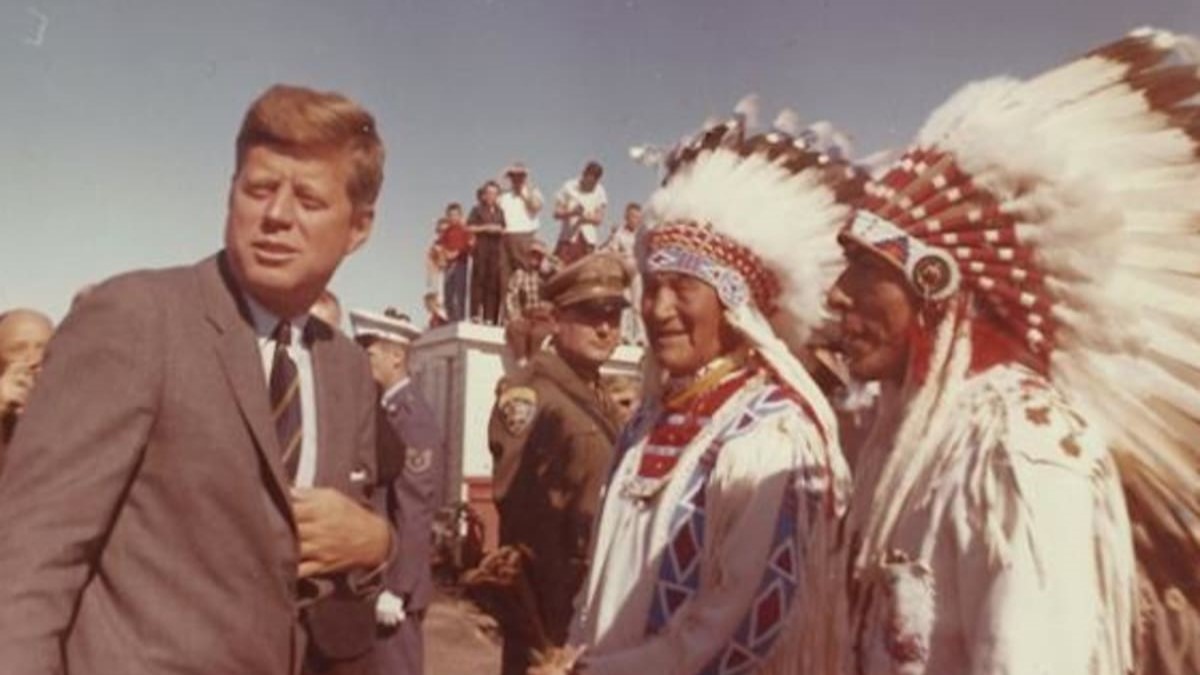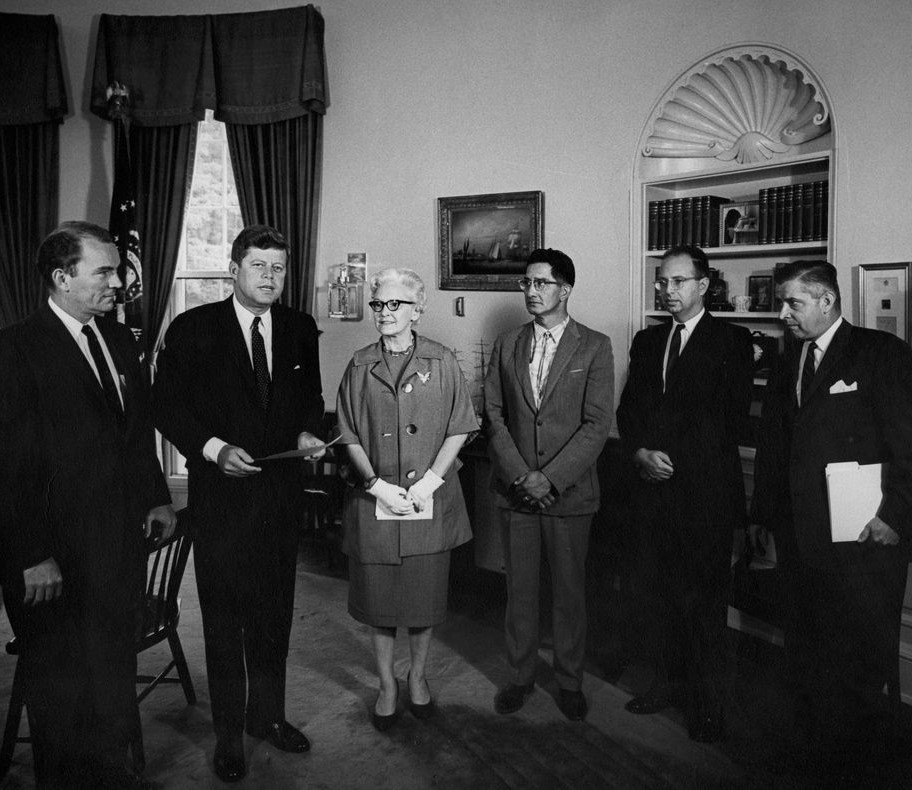Authors:
Historic Era:
Historic Theme:
Subject:
Summer 2025 | Volume 70, Issue 3


Authors:
Historic Era:
Historic Theme:
Subject:
Summer 2025 | Volume 70, Issue 3

Editor's Note: John F. Kennedy is remembered for his record on civil rights, but his efforts to extend basic protections to one of the country's most vulnerable groups — its first inhabitants, Native Americans — are too often forgotten. During his short time in office, the 35th president became a vocal champion of Indian country, helping to ensure Native American sovereignty at a time when it was in jeopardy. Kennedy actively courted the American Indian vote during his presidential campaign, promising to end to policies of tribal termination and relocation that had decimated Native American communities in the preceding decade. In office, his administration was the first to bring public housing to Native American reservations, beginning with a grant to the Oglala Sioux on the Pine Ridge Indian Reservation in South Dakota. Kennedy reasserted these commitments in 1962, when he welcomed delegates to the American Indian Chicago Conference to the White House, where he stressed the "very strong obligation which any American, whether he was born here or came here from other parts of the world, has to every American Indian.”
President Kennedy wrote publicly about his compassion for the first Americans —specifically in his introduction to The American Heritage Book of Indians, published shortly after he entered office in 1961. The essay isn't the first he wrote for this magazine, but it does showcase his reverence for Native Americans and their contributions to the country's history.

For a subject worked and reworked so often in novels, motion pictures, and television, American Indians remain probably the least understood and most misunderstood Americans of us all.
American Indians defy any single description. They were and are far too individualistic. They shared no common language and few common customs. But, collectively, their history is our history and should be part of our shared and remembered heritage.
Yet even their heroes are largely unknown to other Americans, particularly in the eastern states, except perhaps for such figures as Chief Joseph and his Nez Perce warriors of the 1870s, Osceola and his magnificent, betrayed Seminoles of the 1830s, and possibly Sacagawea, the Shoshoni “bird woman” who guided the lost Lewis and Clark expedition through the mountain passes of Montana.
When we forget great contributors to our history—when we neglect the heroic past of the American Indian—we thereby weaken our own heritage. We need to remember the contributions our forefathers found here and from which they borrowed liberally.
When the Indians controlled the balance of power, the settlers from Europe were forced to